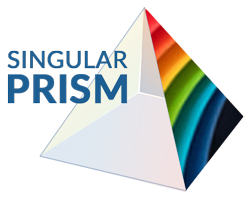At every New Year we begin to measure our lives. We consider the condition in which we have existed and the one we wish to be ours. It is appropriate therefore that today’s subject is the English word series used when we talk about our existence, the verb “be”.
I suspect that the English are not alone in making a hash of talking about existence. I know the verb forms in French and Spanish are labeled “irregular”. Well, the English, not to be outdone, have made theirs both simpler and very much more complicated.
We start with “be”, but the first use we make of this verb is to talk about ourselves, “I am.” Where did this A come from and what happened to the B? It continues in a sort of pattern to “You are.” Good, we are sticking with A, forget about that original B. Another human shows up and we continue with “We are”. Even when more humans arrive, we continue with “They are.” English is looking not so irregular after all.
But, oh no, something not human arrives and “It is.” How did we get to I? Maybe we plan to use all the vowels (a, e, i, o, u)?*
Not true. Start talking about conditions yesterday and suddenly you get “I/it was” and “We/you/they were.” W? How did W turn up? But, once again, English isn’t fussy. It settles for just two versions.
That’s what it looks like, until we start speculating about things, planning for or examining possible “what ifs” and the simple “Be” cannot cope on its own. It has to borrow other verbs: has/had/have, can/could, will/would, shall/should. These we call “helping” verbs.
English is not alone in this. Other languages need helping verbs, too, when speculating. Apparently, the originators of language struggled when thinking about anything more creative than the immediately apparent and the remembered events of yesterday.
In any event, once launched into the imagination, we return to the original “B” with just a little flourish. This gives us “been”. And that’s as complicated as we get. Aren’t you relieved?
Oh, yes, you also will need to learn the conjugations of all those helping verbs, and to this point we have only discussed the state or condition of a single moment or event and not circumstances that persist over time. But that would introduce “being” (which can also be a noun which takes us down a different road).
Here’s a little help for now and the New Year. You will only need to say “I/it/you/we will be” and you have all you need to plan. Just don’t complicate things with those pesky “what ifs”, and you will be fine.
*For those who want to know the reasons behind is/am/are and was/were, see comments in Shadows section of this site.
#EnglishLanguage #EnglishConjugations




Leave a Reply
Want to join the discussion?Feel free to contribute!